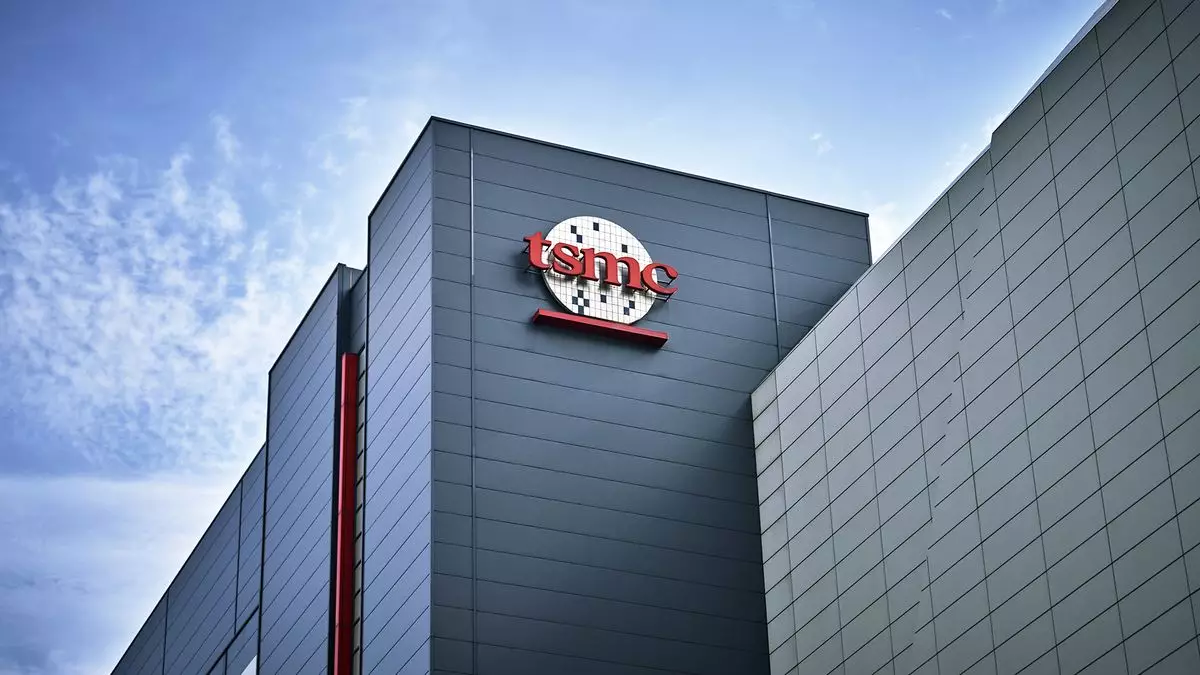Taiwan Semiconductor Manufacturing Company (TSMC), globally recognized as the leading chip manufacturer, is navigating a turbulent legal landscape with potential exposure to a fine exceeding $1 billion. Reports from Reuters, citing unnamed sources close to the situation, indicate that TSMC’s financial misstep could stem from allegations related to export control violations involving Chinese tech giant Huawei. Although a billion-dollar penalty is not trivial for a company of TSMC’s stature, it could have substantial ramifications for its operations and reputation.
The core of the issue lies in an investigation initiated by the US Department of Commerce, focusing on whether TSMC inadvertently facilitated the export of chips intended for Huawei, a company already restricted under US trade regulations. Notably, TSMC disclosed to the US government last year that one of Huawei’s AI products, the Ascend 910B processor, contained chips produced by TSMC. Such revelations have led to an escalation in scrutiny from US officials, including the addition of Sophgo, a computing design firm, to the controversial ‘Entity List,’ prohibiting US companies from dealing with them without a license.
The Complex Web of Export Regulations
Navigating the intricate maze of export controls is a daunting challenge for semiconductor manufacturers like TSMC. As many of their essential manufacturing tools and equipment are sourced from the United States, the company is compelled to adhere to specific restrictions aimed at curtailing technological transfers to entities involved with Huawei. While TSMC has denied providing Huawei with chips since 2020, the ongoing scrutiny highlights the fine line these companies tread in an increasingly polarized geopolitical landscape.
The potential financial fallout stems from stringent export control regulations, which stipulate that violators may incur fines up to twice the value of any transactions deemed noncompliant. This sets the stage for a significant financial repercussion for TSMC, even if the violation was inadvertent. The company may soon receive a “charging letter,” a preliminary notice that would grant them time to respond before any official penalties are finalized. Thus, while the situation is serious, it remains in a state of flux, leaving room for negotiations and clarifications regarding the alleged violations.
The TSMC Investment Narrative: A Contradiction?
Amid these allegations, TSMC has been aggressively expanding its operational footprint in the United States, recently announcing a hefty $100 billion investment plan. This move is intended to bolster the company’s semiconductor manufacturing capabilities domestically, fostering technological independence in critical sectors. However, this ambitious endeavor does not negate TSMC’s obligations under U.S. export laws, adding another layer of complexity to their operational narrative.
Former President Trump’s administration implemented stringent measures against Huawei and other Chinese tech companies, which only complicates matters further for TSMC. The increasing tension between the US and China poses not only a regulatory challenge but also a strategic dilemma for TSMC as they balance growth aspirations in the US with compliance to international trade laws.
TSMC’s Future: Navigating Uncertainty
With the potential for over a billion dollars in penalties hanging over its head, TSMC finds itself at a critical juncture. The company’s ability to manage this crisis could impact not only its financial standing but also its long-term relationships with both US and Chinese markets. As they await further communication from the US Commerce Department or their own internal investigation results, the next steps will be pivotal.
In an industry defined by rapid change and intense competition, TSMC’s responsiveness to regulatory scrutiny will be crucial. While the company has positioned itself to be at the forefront of semiconductor innovation, any missteps related to compliance could alter its trajectory significantly. As TSMC navigates these complex waters, the semiconductor world will be watching closely, given the ripple effects such penalties could have across the global tech landscape.

